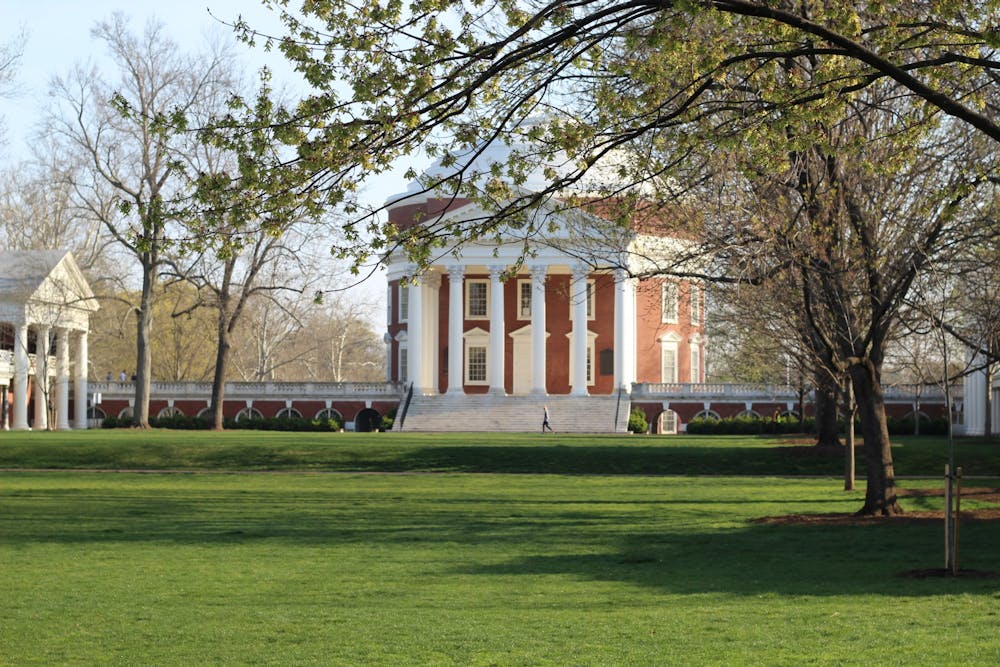Nearly a year ago, the removal of a student’s Lawn sign criticizing the University motivated me to author an article defending that student’s right to freely express herself. Now, seemingly on the opposite end of the political spectrum, the discourse surrounding former vice president Mike Pence’s planned speech at the University — as embodied by this publication’s recent editorial — has inspired me once again to reaffirm that freedom of speech is absolute and must be vigorously defended. While the former vice president’s stances may be highly objectionable, using vaguely defined terms such as “violence” and “direct harm” as pretexts to censorship risks stifling legitimate debate solely out of disagreement.
To be abundantly clear, I do not care much for Pence and find many of his beliefs abhorrent. Yet, I do not pretend that there exists or could exist some objective standard that justifies suppressing his speech based on his ideas alone. When the authors of the recent editorial cite Pence’s values as “violent,” it begs the question — at what point do differences of opinion become harmful? Attempts to delineate between unacceptable and acceptable expressions have arisen in the past and have failed to produce adequate guidelines. To quote Justice Harlan in Cohen v. California, “one man’s vulgarity is another's lyric.” Quite an analogous situation is found here. While support for a “zero-tolerance” policy on immigration may be deemed racist by many, to others it is a legitimate policy proposal. Unfortunately, a similar argument can be extended to Pence’s views on LGBTQ+ issues when considering various religious beliefs.
The Editorial Board’s attempt to resolve this conflict is worrying, to say the least. The authors answer this dilemma with "hateful rhetoric is violent.” Their definition both introduces another subjective term — "hateful" — and completely divorces the content of one's speech from the context of its delivery. Since the authors’ concerns are over statements that “directly [threaten] the presence and lives” of others, context is everything. Consider the corn dealer example put forth by John Stuart Mill. Blaming a corn merchant for starving the poor carries a vastly different weight when expressed in print versus in the form of an angry mob outside the merchant’s home. While the underlying ideas expressed are the same, the latter scenario directly places the corn dealer at risk of bodily harm. Therefore, expressions cannot be deemed harmful solely based on their content. Context is paramount when assessing the likelihood of physical violence. As the former vice president will be delivering his remarks as part of a lecture series hosted on a relatively progressive campus, I struggle to see how the Editorial Board — in good faith — can argue that lives will be directly threatened by such a presentation.
It also must be recognized that freedom of speech runs in two directions. A person’s ability to say something implies the ability of others to hear what they have to say. By silencing the opinions of one, the public loses out on the opportunity to listen. When speakers are denied the chance to lecture on Grounds, interested students simultaneously are deprived of the opportunity to hear them speak. If, as the Editorial Board suggests, the denial of a platform is justifiable for opinions that are hateful, we must cede the authority to decide what is allowable speech to some outside person or institution. Since this is a public university, that institution is the state. When considering the global risks to free expression and the long history of protecting freedom of expression in this country, we should be highly skeptical of trusting the state to regulate what we can or can not hear. As the late essayist Christopher Hitchens, wrote, “I have never met nor heard of anybody I would trust with the job of deciding in advance what it might be permissible for me or anyone else to say or read.” We should not pretend that the direction that censorship takes can be controlled indefinitely either. While the Editorial Board may rest easy under the current state of affairs, it does not take much imagination to foresee a scenario where this discretionary authority is misused to suppress the very values they advocate. Once the door to repression is opened, it is hard to close.
The issue of allowing Mike Pence to speak at the University tests our commitment to freedom of speech and freedom of expression. We cannot let a public university — and by extension, the state — discriminate based on mere beliefs when determining who may or may not be allowed to make an appearance. Our Founding Fathers did not create the First Amendment to safeguard the consensus of the majority, but to protect those minority opinions that are deemed so odious and repugnant that they are placed at constant risk of repression. If our freedoms are to mean anything, they must also extend to those who we fundamentally disagree with. This is exactly why, in 1978, the ACLU defended the rights of neo-Nazis to assemble. When facing the prospect of a controversial speaker coming to Grounds, it is essential that we do not rely on overly broad and ambiguous labels to justify speech suppression. Mike Pence must be allowed to speak, not because we agree with him, but because it is what our constitutional liberties necessitate.
Max Bresticker is an Opinion Columnist for The Cavalier Daily. He can be reached at opinion@cavalierdaily.com.
The opinions expressed in this column are not necessarily those of The Cavalier Daily. Columns represent the views of the authors alone.







